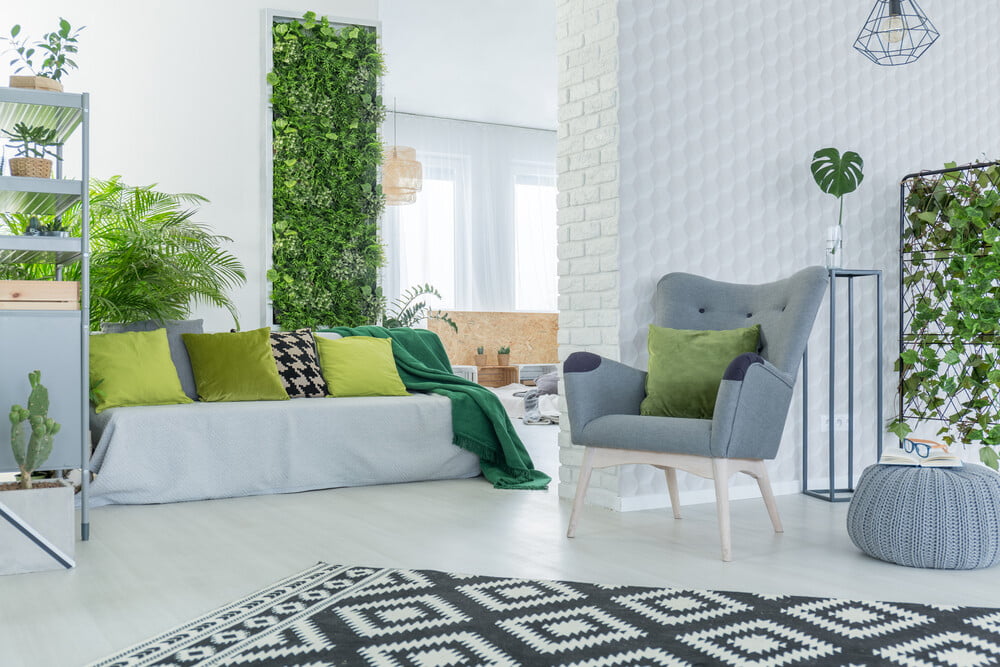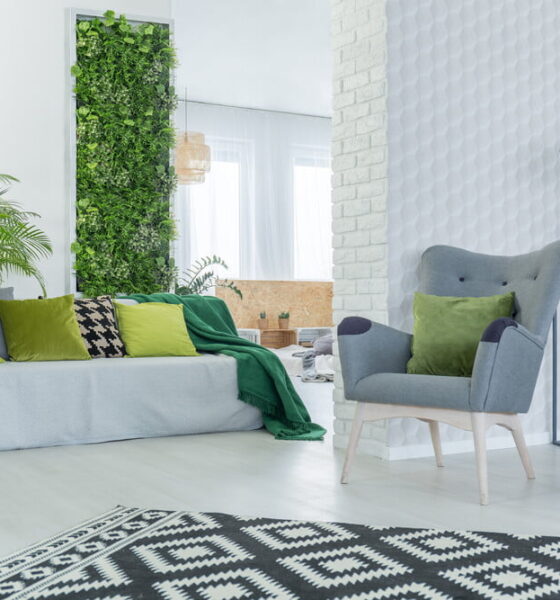

Environment
6 Ways to Make Your Home Eco-Friendly
Are you looking for ways to make your home eco-friendlier? There are a number of advantages to going green. In addition to being better for the environment, it can also help benefit your wallet. Here are six ways to make your home eco-friendly.
1. Make Sure Your Home is Properly Insulated
When your home isn’t properly insulated, it can be drafty — which can ultimately lead to higher gas or electric bills. Look into insulation installation for areas of your home that may be contributing to poor temperature regulation. For example, an uninsulated attic can cause both warm and cool air to be released through the roof. Insulating your basement and wall cavities can also keep your home’s temperatures in check.
The type of insulation you choose also matters. Cellulose, fiberglass, stone mineral wool insulation, and hemp are all eco-friendly options.
If you have any uninsulated floors, consider putting down area rugs. Drafty windows can also benefit from window insulation film.
2. Install Solar Panels
Installing solar panels can be a great way to reduce your energy bills. There’s another benefit, too. Since solar panels are so beneficial to the environment by reducing gas emissions and our dependence on fossil fuels, the government tends to offer tax credits and rebates when you opt for this eco-friendly home upgrade. This is a good option for people in most locations of the US. It can also be used in combination with other energy sources so you’re not exclusively reliant on solar panels.
3. Invest in Smart Thermostats
Space heating contributes to approximately 42% of residential energy use. One way to avoid overheating your home is to invest in smart thermostats, which learn your schedule and heating preferences to automatically regulate the temperatures in your home.
4. Upgrade to LED Lights
You’ve probably heard by now that upgrading to LED light bulbs is one of the most eco-friendly decisions you can make for your home. What you probably don’t know is this staggering statistic: Switching to LED light bulbs can reduce the amount of electricity you’re using by 80%. If you haven’t already made the switch, it’s time to get rid of those incandescent light bulbs.
5. Replace Your Old Appliances
Investing in new appliances might seem counterproductive — especially if your old gadgets are working out just fine — but it can help benefit the environment. If your appliances are 10 years old or older, you will generally benefit from upgrading to more energy-efficient appliances.
Here are some things to keep in mind when trying to decide if you should replace your appliances:
- Gas stoves are much less efficient than modern induction cooktops. And even though it might not sound more eco-friendly, electric stoves are greener than gas stoves, which emit carbon monoxide into the air.
- New washers use 75% less water per load than washers did 20 years ago.
- A new energy-efficient dishwasher can save up to 3,870 gallons of water over the course of its lifetime.
6. Consider Upgrading the Windows In Your Home
If you’re in the process of constructing your dream home or able to make some home renovations, you might consider including more windows in its design. Skylights can add a lot of light — and, ultimately, warmth — to your home.
The type of windows you choose to include in your home also makes a difference. Double-glazed or triple-glazed windows with fiberglass frames and glass windows can also help keep the interior of your home warm. Another idea is to include large, energy-efficient windows in your home’s design.
These are just six ways to make your home eco-friendly. Making a few easy changes to your home can benefit the environment and help you save money in the long run.


 Features11 months ago
Features11 months agoEco-Friendly Cryptocurrencies: Sustainable Investment Choices

 Energy11 months ago
Energy11 months agoThe Growing Role of Solar Panels in Ireland’s Energy Future

 Energy10 months ago
Energy10 months agoGrowth of Solar Power in Dublin: A Sustainable Revolution

 Energy10 months ago
Energy10 months agoRenewable Energy Adoption Can Combat Climate Change
















